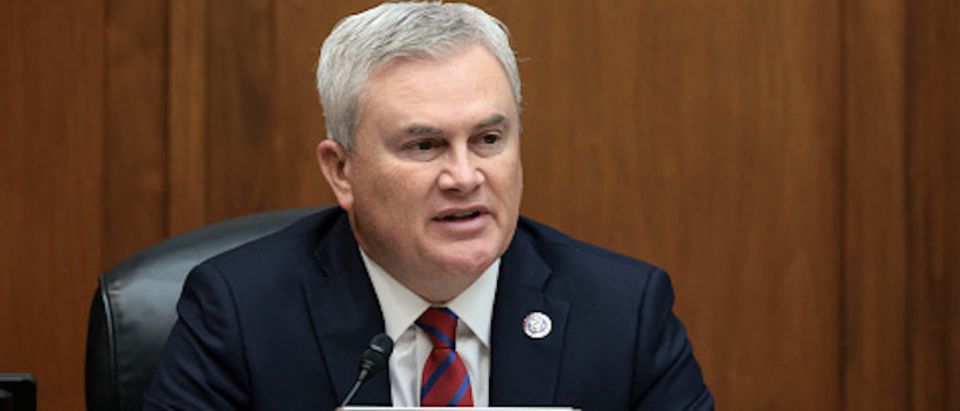Republicans on the House Oversight Committee sent a letter Wednesday to National Institutes of Health (NIH) Acting Director Lawrence Tabak and Department of Health and Human Services (HHS) Secretary Xavier Becerra demanding answers about a grant to EcoHealth Alliance, which then conferred the taxpayer funds to the Wuhan Institute of Virology (WIV).
The Daily Caller first obtained the letter, led by the Ranking Member Kentucky Rep. James Comer and signed by every Republican on the committee. In it, they will be invoking the Seven Member Rule, which is a law that requires, upon a request of seven Members on the Committee on Oversight and Reform, an executive agency to “submit any information requested of it relating to any matter within the jurisdiction of the committee.”
Republicans on the oversight committee made this same request in July.
The Seven Member Rule passed Congress in 1928. The seven lawmakers can be members of either party, or a combination of both, and do not require the approval of the Chair. The difference between the Seven Member Rule and a subpoena is that the right to information is codified in law and, therefore, not subject to delegation by the House.
“A series of events documented in communications from February to April 2020 raise serious concerns about conflicts of interest and abuse of government resources,” the Republican lawmakers said in the letter. “Rather than be transparent with Committee Republicans, HHS and NIH have chosen to hide, obfuscate, and shield the truth. This stonewalling is particularly troubling considering NIH’s direct involvement in responding to the COVID-19 pandemic, and the agency’s policy or practice to destroy potentially pertinent documents related to grant making decisions.”
In the letter, the lawmakers grilled the former NIH director Francis Collins and National Institute of Allergy and Infection Diseases Director Anthony Fauci for not responding to their inquiries regarding a 2014 grant awarded by the NIH to EcoHealth Alliance, Inc. (EcoHealth) that was then awarded to the Wuhan Institute of Virology. They also renewed their request for all documents and communications between the NIH, WIV, and EcoHealth Alliance regarding the grant, as well as those resulting from any U.S. government-led inspection of the WIV arranged by EcoHealth Alliance.
The lawmakers also again called for Fauci’s unredacted emails to be produced to the committee.
EcoHealth provided $600,000 in the form of NIH subgrants to the Wuhan lab between 2014 and 2019 to study bat-based coronaviruses. (RELATED: US Grant To Wuhan Lab To Enhance Bat-Based Coronaviruses Was Never Scrutinized By HHS Review Board, NIH Says)
READ THE LETTER HERE:
(DAILY CALLER OBTAINED) — … by Henry Rodgers
“By continuing to refuse to cooperate with our request, HHS and NIH are choosing to hide information that will help inform the origins of the ongoing pandemic, prevent future pandemics, strengthen the United States’ national security posture, and restore confidence in our public health experts and infrastructure. The agencies’ continued obstruction is likely to cause irreparable harm to the credibility of these institutions. By providing the requested documents and information, HHS and NIH will have the opportunity to help our country move forward in a positive, transparent direction following the COVID-19 pandemic,” the lawmakers added in Wednesday’s letter.
Many Republican lawmakers have called for Fauci’s resignation after thousands of his emails from the beginning of the global COVID-19 pandemic were published by The Washington Post and Buzzfeed News. The emails contained comments on wearing masks, the lab leak theory and more. (RELATED: EXCLUSIVE: House Oversight Republicans Demand Answers From Fauci, Collins Over Grant To Wuhan Lab)
The lawmakers called for the documents from the HHS and the NIH to be provided no later than Feb. 16.


